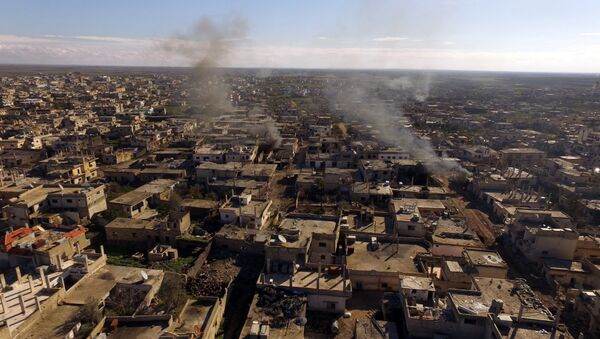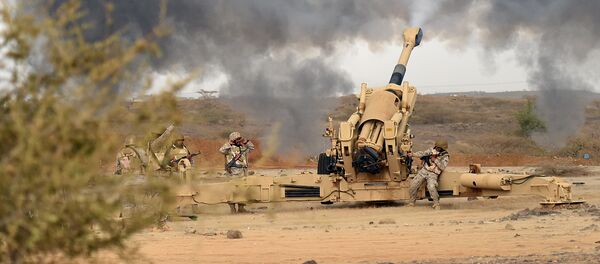WASHINGTON (Sputnik) — On Thursday, the Saudi Defense Ministry, led by Deputy Crown Prince Mohammed bin Salman, the son of the reigning monarch, had made the offer to the US government. US Department of State spokesperson John Kirby revealed that the Obama administration is discussing the parameters of the Saudi offer.
"Such a contribution, if it occurs at all, will be token in character and no added military value," retired US Army Colonel and expert on Middle East warfare Doug Macgregor said on Friday.
However, Middle East Institute analyst Thomas Lippman, a noted author and historian on the Middle East, cautioned that the Saudi offer had been cautious and did not amount to any firm commitment.
"The Saudi statement made clear that they would be willing to consider deploying its forces only as part of a coalition and I am not aware that there is likely to be such a coalition at all. Who would be in it?" Lippman asked.
US Department of State spokesman John Kirby acknowledged on Thursday that US policymakers were not clear what the Saudis were actually proposing and required more details from them.
Lippman said the Saudi offer should be understood as an expression of support for the United States and its allies rather than as a firm commitment to send military forces into Syria.
"I understand the statement as a policy announcement. It is a reflection of the more muscular and bolder foreign policy stands the Saudi government has taken in the year since King Salman took power."
The new king had already abandoned the refusal of his predecessors to get directly involved militarily in conflicts outside the Desert Kingdom’s borders, Lippman noted.
"It is no longer inconceivable after the Saudi air war in Yemen that the Kingdom could use its military forces outside its own borders."
However, Lippman warned that the Saudis would be constrained by the limited size and experience of their own army from sending significant forces to fight Daesh on the ground in Syria.
"The Saudis have zero troops, zero officers with training or experience in the kind of combat we’re talking about in Syria, which involves intense ground fighting, often street by street in cities."
Also, the Saudis have not sent ground forces to fight outside their country since 1934 when King Abdul Aziz bin Saud, the founder of the modern Saudi state, briefly invaded neighboring Yemen, Lippman observed.
Thomas Lippman is US author and historian specializing in the Middle East, and is a former foreign correspondent for The Washington Post.
Colonel Doug Macgregor is a military historian and a leading US expert on Middle East war and integrated ground combat tactics in modern warfare. He commanded US armored forces in the Battle of 73 Easting in the 1991 Gulf War, the largest US tank victory since World War II.



